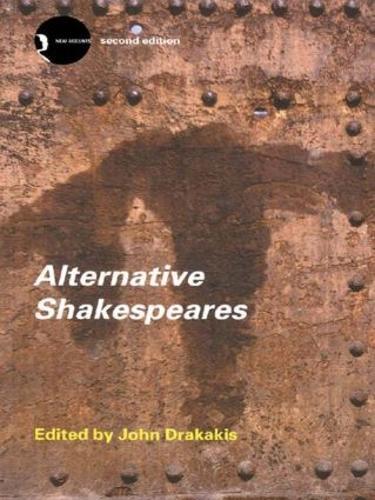Overview
When critical theory met literary studies in the 1970s and 80s, some of the most radical and exciting theoretical work took as its subject the long mythologized, quasi-sacred figure of Shakespeare. Alternative Shakespeares is a unique collection of essays by founding figures in this movement to remake Shakespeare studies. Drawing upon revolutionary work in the semiotics of drama, post-structuralism, psychoanalysis, feminism and Marxism, each essay challenges the Shakespeare myth and the assumptions underlying traditional modes of criticism. Exploring such fundamental issues as text, meaning and subjectivity, the volume argues that there can be no unified subject 'Shakespeare' and that we must rather define and contest a series of alternative 'Shakespeares' according to our own perspectives. A new afterword by Robert Weimann outlines the extraordinary impact of this volume upon academic Shakespeare studies. However, the Shakespeare myth continues to thrive not only in Stratford but in our schools, making these essays as relevant and as powerful as they were upon publication. With an author list that reads like a 'who's who' of modern Shakespeare studies, Alternative Shakespeares simply must be read.
Full Product Details
Author: John Drakakis (University of Stirling, UK)
Publisher: Taylor & Francis Ltd
Imprint: Routledge
Edition: 2nd edition
Dimensions:
Width: 12.90cm
, Height: 2.50cm
, Length: 19.80cm
Weight: 0.530kg
ISBN: 9780415287234
ISBN 10: 0415287235
Pages: 288
Publication Date: 23 May 2002
Audience:
College/higher education
,
Professional and scholarly
,
Undergraduate
,
Postgraduate, Research & Scholarly
Format: Paperback
Publisher's Status: Active
Availability: In Print

This item will be ordered in for you from one of our suppliers. Upon receipt, we will promptly dispatch it out to you. For in store availability, please contact us.
Reviews
The book is even more a necessity than it was when it was first published by Methuen in 1985. Nobody has improved (in my view) on the deconstructions herein or gone significantly past the post-structuralist approaches put to work here. This is more than a milestone in Shakespearian criticism; it is a direction indicator. - Chronique
""The book is even more a necessity than it was when it was first published by Methuen in 1985. Nobody has improved (in my view) on the deconstructions herein or gone significantly past the post-structuralist approaches put to work here. This is more than a milestone in Shakespearian criticism; it is a direction indicator."" -""Chronique
The book is even more a necessity than it was when it was first published by Methuen in 1985. Nobody has improved (in my view) on the deconstructions herein or gone significantly past the post-structuralist approaches put to work here. This is more than a milestone in Shakespearian criticism; it is a direction indicator. <br>- Chronique <br>
Author Information
The Editor, John Drakakis, is Professor of English Studies at the University of Stirling.




